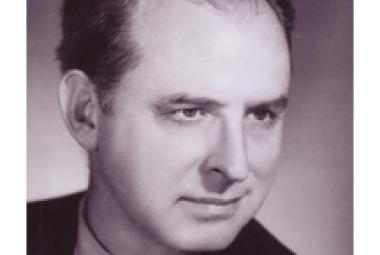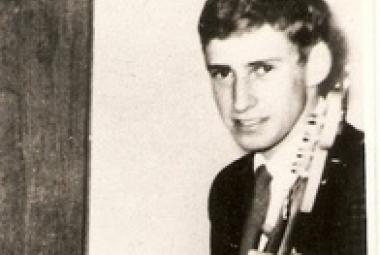Hank Williams. (September 17, 1923 – January 1, 1953) was an American singer-songwriter and musician. Regarded as one of the most significant and influential singers and songwriters of the 20th Century, Williams recorded 35 singles (five released posthumously) that would place in the Top 10 of the Billboard Country & Western Best Sellers chart, including 11 that ranked number one. (More from Wikipedia)
In 1998, an organization called Native American Music Association & Awards was started in order to bring awareness of the contributions of Native Americans to music in all its forms; the Awards have been presented annually since that time. The surprise at taking even a quick glance at their "Did You Know" roster at http://www.nativeamericanmusicawards.com/halloffame.cfm is the incredible number of stars of popular music who have Native American blood – the tribe or confederation name(s) are given in parentheses here and elsewhere in this post: Elvis Presley (Cherokee), Jimi Hendrix (Cherokee), Hank Williams (Choctaw), Willie Nelson (Cherokee), Ritchie Valens (Yakui), Aaron Neville and the Neville Brothers (Choctaw/Cherokee), Loretta Lynn and her sister Crystal Gayle (Cherokee), Kitty Wells (Cherokee), Wayne Newton (Powhatan), Michael Jackson and the Jacksons (Choctaw/Cherokee), Link Wray (Shawnee), Richie Havens (Blackfoot), Robbie Robertson of the Band (Mohawk), Tina Turner (Navaho), Cher (Cherokee), Rita Coolidge (Cherokee), Eddie Van Halen of Van Halen (Native Hawaiian – Native Americans who are not among those often called Indians), Tori Amos (Cherokee), Toni Tennille of the Captain and Tennille (Cherokee), Billy Ray Cyrus and his daughter Miley Cyrus (Cherokee), Anthony Kiedis of Red Hot Chili Peppers (Mohican), LL Cool J (Cherokee), Beyoncé (Creole), etc.
Tommy Allsup (Cherokee) was a member of Buddy Holly's new band in 1959; he "lost" a coin flip with Ritchie Valens and was thus not on board the airplane that crashed on the day the music died.
(August 2013)
* * *
I was also able to tour the Country Music Hall of Fame Museum, where I learned about the disparate forces leading to what is known as country music: rockabilly from Elvis Presley on down (my favorite form of country and, by now, maybe my favorite form of rock and roll as well), yodeling masters (particularly Jimmie Rodgers, whose 1927 hit "Blue Yodel No. 1 (T for Texas)" was the first half-million-selling country song), honky tonk (the kind of music heard in early country music clubs, as personified by Hank Williams Sr.), mountain folk music (most importantly the Carter Family), Western music (often in the form of singing cowboys like Gene Autry and Roy Rogers – in fact, for many years the genre was called country and western), and Western swing (basically countrified big-band sounds). I don't know too much about the latter strand, and Jimmie Rodgers is a bit old-fashioned for my tastes (though I have a compilation CD that I sure hope turns up among those remaining to be cleaned up from Katrina); but I have learned enough about the other foundational musicians over the years and other early forms of country to become a major fan.
* * *
My final experience in Nashville on that trip was to see a musical play called Hank Williams: The Lost Highway that featured Jason Petty in the title role – he both looked and sounded like the man. The play was staged at the legendary Ryman Auditorium, the home of The Grand Ole Opry from 1943 through 1974. Much of the story turned on what Hank Williams should do with his masterpiece "I'm So Lonesome I Could Cry" that didn't fit in well with his other work in this period. Ultimately it was released in 1949 as the B-side of his #2 hit "My Bucket's Got a Hole in It"; the song was later covered by numerous recording artists, notably B. J. Thomas, whose cover of "I'm So Lonesome I Could Cry" hit #8 in the Billboard charts in 1966 and led to a re-release of the original song in the same year that just missed the Top 40. The Hank Williams version of "I'm So Lonesome I Could Cry" is ranked 29th among the 100 Greatest Songs in Country Music by the basic cable channel Country Music Television. Also, as stated in Wikipedia: "Rolling Stone ranked ['I'm So Lonesome I Could Cry'] #111 on their list of the 500 Greatest Songs of All Time, the oldest song on the list."
My father had an early compilation album called Hank Williams Memorial Album that was released not long after his death on New Years Day in 1953. Hank Williams is the first true country music artist that I remember loving.
* * *
Like rock and roll, country music presented older music in new forms in the early days, though most of the material was new songs – or at least new to their audiences. Hank Williams and Jimmie Rodgers ("The Singing Brakeman") among others are legendary songwriters as well as performers. Another early country-music legend Roy Acuff is also renowned as the founder in 1942, with Fred Rose (a talent scout and major music-industry figure), of Acuff-Rose Music; as described in Wikipedia: "Acuff-Rose's honest behavior towards their writers set them apart from other music publishing firms at the time and led them to fame throughout the 50's, 60's, and 70's."
(February 2015)
* * *
At the beginning of the "Bio" section of his website is a quote from Trouser Press that says of Phil Gammage's music: “. . . underwrought darkside Americana echoing Nick Cave’s fascinations minus the melodrama. Which might well make Gammage this generation’s Hank Williams.”
(March 2015)















